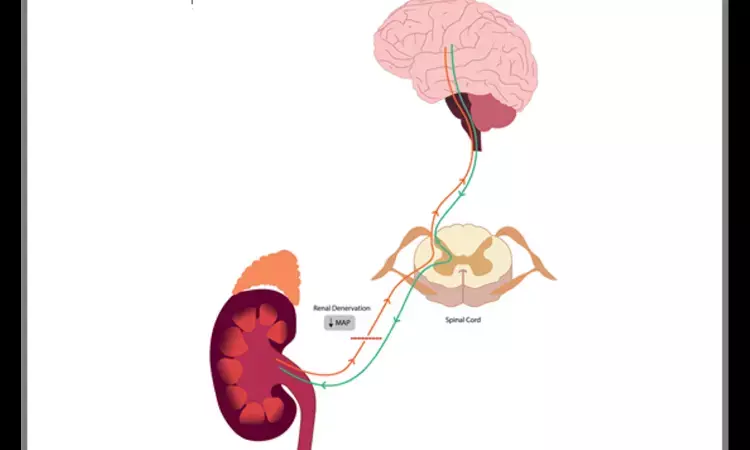- Home
- Medical news & Guidelines
- Anesthesiology
- Cardiology and CTVS
- Critical Care
- Dentistry
- Dermatology
- Diabetes and Endocrinology
- ENT
- Gastroenterology
- Medicine
- Nephrology
- Neurology
- Obstretics-Gynaecology
- Oncology
- Ophthalmology
- Orthopaedics
- Pediatrics-Neonatology
- Psychiatry
- Pulmonology
- Radiology
- Surgery
- Urology
- Laboratory Medicine
- Diet
- Nursing
- Paramedical
- Physiotherapy
- Health news
- Fact Check
- Bone Health Fact Check
- Brain Health Fact Check
- Cancer Related Fact Check
- Child Care Fact Check
- Dental and oral health fact check
- Diabetes and metabolic health fact check
- Diet and Nutrition Fact Check
- Eye and ENT Care Fact Check
- Fitness fact check
- Gut health fact check
- Heart health fact check
- Kidney health fact check
- Medical education fact check
- Men's health fact check
- Respiratory fact check
- Skin and hair care fact check
- Vaccine and Immunization fact check
- Women's health fact check
- AYUSH
- State News
- Andaman and Nicobar Islands
- Andhra Pradesh
- Arunachal Pradesh
- Assam
- Bihar
- Chandigarh
- Chattisgarh
- Dadra and Nagar Haveli
- Daman and Diu
- Delhi
- Goa
- Gujarat
- Haryana
- Himachal Pradesh
- Jammu & Kashmir
- Jharkhand
- Karnataka
- Kerala
- Ladakh
- Lakshadweep
- Madhya Pradesh
- Maharashtra
- Manipur
- Meghalaya
- Mizoram
- Nagaland
- Odisha
- Puducherry
- Punjab
- Rajasthan
- Sikkim
- Tamil Nadu
- Telangana
- Tripura
- Uttar Pradesh
- Uttrakhand
- West Bengal
- Medical Education
- Industry
Radiofrequency Renal Denervation effective on long term basis among Patients With and Without CKD: Study

A recent study published in Hypertension by Kario et al. (2025) provides compelling evidence that radiofrequency renal denervation offers durable blood pressure control for up to three years in patients with resistant hypertension, regardless of whether they have chronic kidney disease (CKD). The procedure, which targets overactive renal sympathetic nerves to reduce blood pressure, demonstrated sustained and clinically meaningful reductions in systolic and diastolic pressure in both CKD and non-CKD participants. The findings underscore the growing potential of renal denervation as a long-term, device-based treatment option for individuals who do not achieve adequate control through medication alone.
The study followed patients with uncontrolled hypertension across varying stages of kidney function, including those with CKD stages 3a and 3b. Over the three-year follow-up period, patients continued to experience stable blood pressure improvement without significant decline in kidney filtration rates or increase in renal complications. Importantly, renal denervation maintained its effectiveness across different patient subgroups, highlighting its safety profile and durability. These results address long-standing concerns about the long-term renal safety of the procedure, showing that it can help lower blood pressure without worsening kidney function.
The authors concluded that radiofrequency renal denervation represents a promising and safe adjunctive therapy for patients struggling with resistant hypertension, including those with early to moderate CKD. Sustained blood pressure reductions achieved through this intervention may also lower the risk of cardiovascular events, such as heart failure and stroke, in this high-risk population. The study’s findings support the integration of renal denervation into comprehensive hypertension management strategies, particularly for patients who remain hypertensive despite adherence to pharmacological therapy. Continued long-term monitoring and future randomized studies may further validate these outcomes and help refine patient selection criteria for optimal benefit.
Keywords: Radiofrequency renal denervation, Chronic kidney disease, Resistant hypertension, Blood pressure control, Renal safety, Long-term outcomes, Cardiovascular risk
Reference
Kario, K., Mahfoud, F., Böhm, M., Townsend, R. R., Schmieder, R. E., & Tsioufis, K. (2025). Long-term blood pressure reduction and renal safety with radiofrequency renal denervation in patients with and without chronic kidney disease. Hypertension. American Heart Association. https://doi.org/10.1161/HYPERTENSIONAHA.125.25470
Dr. Shravani Dali has completed her BDS from Pravara institute of medical sciences, loni. Following which she extensively worked in the healthcare sector for 2+ years. She has been actively involved in writing blogs in field of health and wellness. Currently she is pursuing her Masters of public health-health administration from Tata institute of social sciences. She can be contacted at editorial@medicaldialogues.in.


